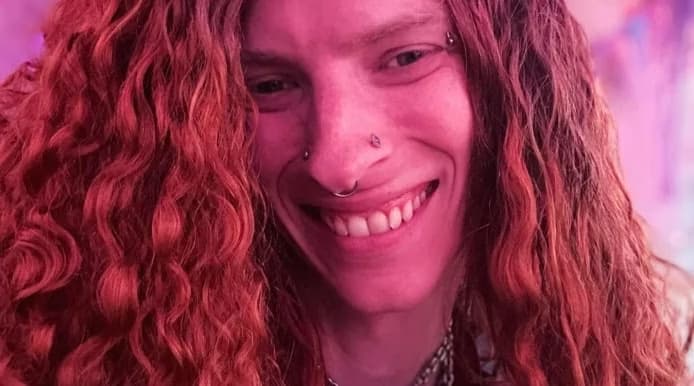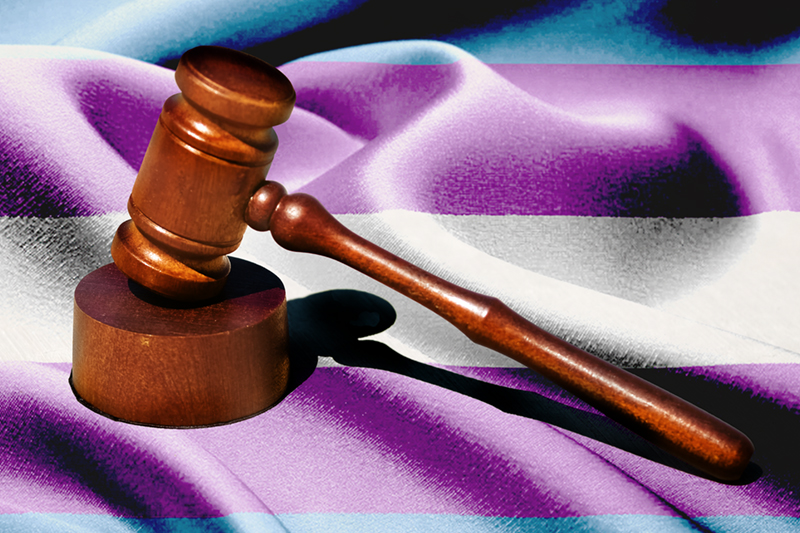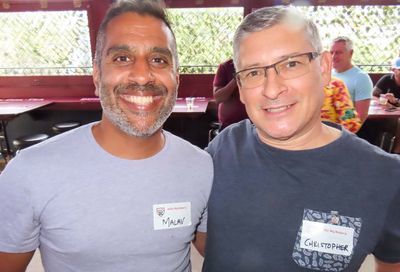Crowd Rallies in D.C. for Transgender Health
Activists call for competent, culturally sensitive care for transgender people, equal coverage for medical procedures
A crowd of more than 100 people rallied at the Columbia Heights Plaza Saturday, March 30, to demonstrate support for equal treatment in health care for transgender individuals, with many local activists sharing personal stories of medical discrimination.
Although the D.C. Human Rights Act prohibits discrimination based on gender identity or expression, many transgender Washingtonians say their experiences with local hospitals and medical centers fall short of that guarantee.
According to a 2012 needs-assessment survey by the DC Trans Coalition (DCTC), a lack of competent, culturally sensitive health care options was the single-most important concern of D.C. transgender residents.
Nico Quintana, 29, one of the chief organizers of Saturday’s rally, was among those sharing a story of health care discrimination with the crowd. Quintana, a transgender man, told rally attendees that following a double mastectomy he developed a serious infection that required repeated hospitalization. The infection started, he said, because his insurance company denies coverage for treatment related to gender-transitioning, making an outpatient center his only feasible option for this serious surgery.
”The first question I got, when I could barely stand, could barely see, and was basically dying, was, ‘We can’t process you. Are you a man or a woman or what? We can’t process you until we know,”’ Quintana recounted. ”I thought, ‘Oh, God, what will the insurance companies do? Because my documents say one thing, my insurance documents say another thing, and will they cover – holy shit – a breast-care specialist?’ No one should have to think that when they’re dying.”
”We need trans-health equality now,” Quintana continued, making the case that such health services should be covered by public and private insurance. ”This is an economic justice issue, this is a human-rights issue, this is a D.C. issue. We need to do this now.”
Rally organizer Andy Bowen gave a nearly 20-minute speech outlining problems that transgender patients encounter, providing specific examples of medical procedures that might be necessary for transgender people but that may not be covered by insurance companies.
”We need to make sure all insurance policies offered in D.C. cover the full range of medically necessary transgender health care needs,” Bowen said. ”We need to make sure trans people have fully competent care.”
At times, the speakers and attendees emphasized the economics of health care, as well as the impact of economic conditions on health. Representatives from labor groups, such as the Service Employees International Union (SEIU), attended the rally, and several of the speakers noted a need for economic opportunities for D.C.’s transgender community, which needs-assessment surveys have shown is typically poorer and has less access to adequate medical insurance than do other groups in the District. Throughout the rally, volunteers handed out pledge cards asking attendees to provide contact information and to promise to speak to family, friends and coworkers about transgender-rights issues, such as health care parity.
Ruby Corado, a transgender activist and founder of the LGBT community center Casa Ruby, also spoke at the rally, recounting the history of the local transgender community’s struggle to achieve equality, invoking the memory of Tyra Hunter, a transgender woman who died in 1995 following a car accident. D.C. emergency medical technicians stopped treating Hunter after discovering that she had male genitalia.
”Now, in 2013, we have the strongest legislation in the country,” Corado said amid cheers from the crowd, referring to the D.C. Human Rights Act. ”It makes it illegal to discriminate against a person who’s transgender.”
Corado also shared her own story of transitioning.
”For those of you who really never understood or sympathized with transgender [people], if you have time to switch your shoes, the left one to the right one, that’s what I had to deal with as a person who is transgender,” she said. ”I felt that my shoes were not fitting properly … like I was walking in the wrong shoes. … Now I have transitioned, and I feel like I have on the right shoes.”
In recent weeks, the District’s Department of Insurance, Securities and Banking (DISB) has taken steps to correct disparities in transgender health care by issuing a bulletin specifically prohibiting discrimination based on gender identity or expression by insurance companies who underwrite health-insurance policies in D.C., becoming the third such jurisdiction in the United States – behind California and Oregon – to do so.
The DISB guidance seeks to ensure that transgender individuals have access to medical procedures that would be afforded to non-transgender patients, such as Pap smears used for detecting HPV for cervical cancer, mammograms for breast cancer screenings and prostate exams. Those current DISB guidelines pertain only to private insurance in the District – not Medicare or Medicaid – and do not require insurance companies to cover gender-reassignment surgery.
The National Center for Lesbian Rights (NCLR), the American Civil Liberties Union (ACLU) and Gay & Lesbian Advocates and Defenders (GLAD), last week filed an administrative challenge to Medicare’s ban on medically necessary health care for transgender patients. Currently, the federal program has a blanket prohibition on gender-reassignment surgeries.
”Medicare’s categorical exclusion of this care lacks any scientific basis,” Shannon Minter, the legal director at NCLR, said in a statement issued April 1. ”Study after study has shown that these surgeries are the only effective treatment for many patients suffering from severe gender dysphoria.”
The Department Appeals Board of the U.S. Department of Health and Human Services (HHS) had already put in motion a review the ban, which will determine whether it is reasonable based on current standards of care.
Support Metro Weekly’s Journalism
These are challenging times for news organizations. And yet it’s crucial we stay active and provide vital resources and information to both our local readers and the world. So won’t you please take a moment and consider supporting Metro Weekly with a membership? For as little as $5 a month, you can help ensure Metro Weekly magazine and MetroWeekly.com remain free, viable resources as we provide the best, most diverse, culturally-resonant LGBTQ coverage in both the D.C. region and around the world. Memberships come with exclusive perks and discounts, your own personal digital delivery of each week’s magazine (and an archive), access to our Member's Lounge when it launches this fall, and exclusive members-only items like Metro Weekly Membership Mugs and Tote Bags! Check out all our membership levels here and please join us today!























